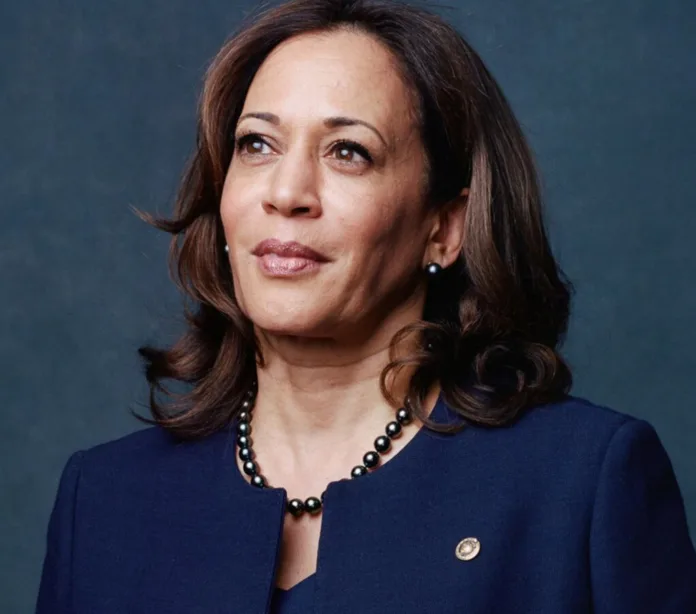Pro-Palestinian activists aim to overshadow Kamala Harris’s speech at the Democratic National Convention in Chicago, protesting U.S. Support for Israel amid the gaza conflict
In Chicago, a massive protest against U.S. foreign policy in Gaza unfolded as Vice President Kamala Harris prepared to address the Democratic National Convention (DNC). Pro-Palestinian demonstrators, angered by the Biden-Harris administration’s backing of Israel in its ongoing conflict with Hamas, organized a large-scale march through the city on Thursday night. This demonstration coincided with Harris’s highly anticipated speech at the United Center, a heavily secured venue.
The protest is set to draw tens of thousands of participants, reflecting deep divisions within the Democratic Party over the U.S. response to the Gaza crisis. Despite the DNC’s efforts to present a unified front as the party gears up for the 2024 presidential election, the conflict in Gaza has sparked significant unrest among some Democrats.
Embed from Getty ImagesRabbi Brant Rosen of the Jewish Voice for Peace Rabbinical Council criticized Harris’s recent call for a ceasefire as inadequate, given the ongoing U.S. military support for Israel. Protesters echoed this sentiment, holding signs that challenged the Democratic leadership to earn their votes through substantive policy changes rather than symbolic gestures.
Delegates from the uncommitted movement, which had previously opposed President Joe Biden’s candidacy, staged a sit-in after being denied the opportunity to address the convention. The United Auto Workers union, which has endorsed Harris, demanded that Palestinian-American voices be included in the convention’s discussions.
Harris, who replaced Biden as the Democratic nominee a month ago, has yet to outline significant policy differences regarding the Gaza conflict. The ongoing violence has resulted in substantial casualties, with Palestinian health authorities reporting over 40,000 deaths.
The protesters, organized by the Coalition to March on the DNC, have faced a significant police presence and strict security measures around the convention venue. Nonetheless, their demonstrations have included various actions, from marches to sit-ins, expressing frustration over U.S. policy and its impact on the Palestinian people.
A resident who immigrated from the Palestinian territories over 40 years ago joined the protest to support his community. While he remains undecided about voting in the upcoming election, he expressed hope for a candidate who could positively impact the situation in Gaza.
Hatem Abudayyeh, national chair of the US Palestinian Community Network, emphasized that while protesters may not support Donald Trump, they remain unsatisfied with the current Democratic approach. He warned that the issue of Gaza could be pivotal in shaping the electoral outcome, potentially influencing voter sentiment significantly if not addressed adequately by the Democrats.
Analysis:
Political: The protests underscore a growing rift within the Democratic Party over foreign policy, particularly regarding U.S. support for Israel. As the party prepares for the 2024 election, the Gaza conflict poses a significant challenge. The protesters’ demands for a shift in policy reflect broader dissatisfaction that could impact voter turnout and support. The Biden administration’s approach has been criticized for not sufficiently addressing the humanitarian concerns raised by the conflict, potentially alienating progressive voters and affecting Harris’s chances in a closely contested election.
Social: The demonstrations highlight the deep societal divisions over U.S. foreign policy and its ethical implications. The visibility of these protests at a major political event like the DNC reflects the increasing influence of grassroots activism on national politics. The movement calls for a reassessment of U.S. involvement in international conflicts, emphasizing the need for policies that align with humanitarian values and address global injustices.
Racial: The protests are also a response to perceived injustices affecting Palestinian communities. The involvement of Palestinian-Americans and their demand for a more inclusive dialogue at the DNC highlight racial and ethnic tensions within the U.S. political landscape. The call for more representation and acknowledgment of Palestinian voices underscores the racial dimensions of the conflict and the need for a more nuanced approach to U.S. foreign policy.
Gender: The role of women in the protests, including those wearing headscarves and leading chants, underscores the intersection of gender and political activism. Women are at the forefront of these demonstrations, advocating for a reassessment of U.S. policies that they believe disproportionately impact marginalized communities. Their participation reflects broader trends of increased female engagement in political protests and advocacy.
Economic: The economic implications of the protests are tied to the broader impact of U.S. foreign policy decisions on international relations and trade. The Gaza conflict and U.S. support for Israel can influence economic partnerships and trade agreements, affecting both domestic and global markets. The protests serve as a reminder of the economic ripple effects of foreign policy decisions, including potential impacts on U.S. relations with other countries and economic stability.
